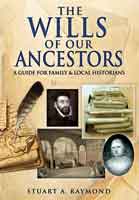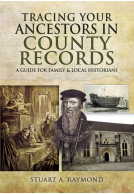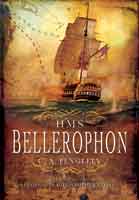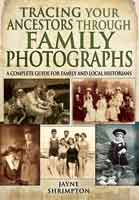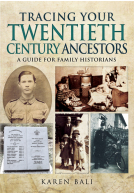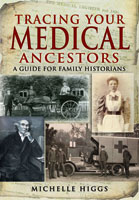Tracing Your Ancestors' Parish Records (ePub)
A Guide for Family and Local Historians
Imprint: Pen & Sword Family History
File Size: 15.3 MB (.epub)
Pages: 186
ISBN: 9781473851870
Published: 4th February 2015
Parish records are essential sources for family and local historians, and Stuart Raymond's handbook is an invaluable guide to them. He explores and explains the fascinating and varied historical and personal information they contain. His is the first thoroughgoing survey of these resources to be published for over three decades.
In a concise, easy-to-follow text he describes where these important records can be found and demonstrates how they can be used. Records relating to the poor laws, apprentices, the church, tithes, enclosures and charities are all covered. The emphasis throughout is on understanding their original purpose and on revealing how relevant they are for researchers today.
Compelling insights into individual lives and communities in the past can be gleaned from them, and they are especially useful when they are combined with other major sources, such as the census.
Your Ancestors' Parish Records is an excellent introduction to this key area of family and local history research – it is a book that all family and local historians should have on their shelf.
As featured in
Who Do You Think You Are
Referenced in 'Resources' part of Paul Blake article, English And Welsh Baptism Registers as featured by
WDYTYA? Magazine, March 2021
Author article on ancestors and the Church of England as featured in
Family Tree, January 2018
As featured in 'further reading' section
Your Family History, February 2017
This is a subject I know something about having written two recent books on English parish registers and the Parish Chest records. Yet, this book was a delight to read adding details and expanding upon what I already knew about the subject.
Paul Milner Genealogy
For many family historians it is the baptism, marriage and burials registers that are first and often only records used to identify an ancestor and put them into a specific time and place. These registers are covered in this book, but in one short chapter in the middle of the book. It is the other records created by the parish that will make our ancestors come alive. Their level in society is irrelevant as they will either be conducting the business of the parish, working for the parish in one of many capacities, or receiving assistance from the parish and its officers. In other words everyone can and should be found in these records, assuming they have survived for your parish of interest.
So what is here? The English parish was an integral part of English life for at least a thousand years, certainly up through the early twentieth century. Order within the country was maintained through the parish its officers and institutions, including: clergy; guilds; vestry; churchwardens; overseers; constables; highway surveyors; parish and vestry clerks; beadsmen; beadles; organists and singers; dog-whippers; and sidesmen all of whom are put into context and all of whom generated records and accounts. The parish itself is governed by the vestry so it is the vestry minutes and account books of the different officers that are often the most voluminous and detailed records within the parish, and unfortunately the least indexed or published. Until the mid-nineteenth century the parish was responsible for the poor and the book explains how and what shape that care took, how it changed over time, and what records were generated along the way. Care needs to be taken of the church buildings and its contents so we find: inventories of church goods; bede rolls; glebe terriers; Easter books; faculties; seating plans; magazines; sermons; registers of services and preachers. The church and its members were often involved in litigation as witnesses, petitioners, or as accused in the church courts, all leaving records. To put ancestors physically on the ground and understand their worth within the hierarchy of the parish look for the tithe records; the enclosure awards and maps; or the details on the parish charities.
Throughout the book the emphasis is on understanding the history of the records, their context and what they provide or tell a researcher. The researcher is pointed towards more in depth resources through annotated recommendations often history books that have used a specific record set to describe a specific place or time period. These histories are extremely valuable in putting ancestors and the places in which they live into a correct detailed historical context, for no parish is an island unto itself. The contents of specific document types are often extracts from published sources, only a few original documents are illustrated or extracted. The reader needs to look at both the citation endnotes and the recommended reading lists within each chapter for rarely will a source be in both lists.
I agree with the descriptive text on the cover, at least for English researchers, that this “is a book that all family and local historians should have on their shelves.” You will not be disappointed as this is a big subject and this book will start you off well.
As featured in.
Who Do You Think You Are? Magazine - December 2015
As featured in
Who Do You Think You Are? Magazine - March 2016
Stuart Raymond is an established authority
Reference Reviews
on local and family history. He writes in an easy
and accessible style and his inclusion of amusing
anecdotes makes the work a delight to read. It is
a comprehensive and concise guide to an
important aspect of British local and personal
history. This book will be welcomed by local
and family historians and it certainly should find
a place on the shelves of all local studies
collections.
This a very comprehensive discussion of the parish and its doings, of how and where, and by whom recorded. It is clearly written and even has its odd moments of humour.
The Friends of the National Archives
Compact and easy to read; Stuart explains everything very well and it is easy to understand how records were used in the original context and how they could benefit the researcher now.
Beds Family History Society
What could be viewed as a rather steady subject has, in this book, been expertly crafted in to an enjoyable read.
Tracing family history has become a very popular activity. The internet and television programmes have spurred fresh interest, but one of the rich sources of information is to be found in Parish Records. This book provides a fascinating tour of the nature and accessibility of these local records, providing a wealth of information, showing how and why the records were kept and what information they can provide. This book is an obvious first choice for anyone starting to research the origins of their family, but it also provides images and text that is interesting also as a clear insight into local affairs and the taxation due to the Church in tithes, dating back to the period when the Church was effectively a State within a State, owing its loyalty to the Pope. An excellent read... The author has produced one of the most interesting books on the subject and the inclusion of many images through the body of the book has painted a picture that contains many absorbing facts and surprises. Highly recommended.
FIRE Project
A reference book that will be invaluable to all historians who want to establish the past lives and times of ancestors and communities.
Essex Society for Family History
There are comprehensive sections covering the records relating to the Poor Laws, Apprentices, Churches and Parish Registers, Tithes, Enclosures and Charities. Detailed notes on sources are included for each section.
Bristol and Avon Family History Society
As seen in.
Kent Family History Society Journal
This is the first detailed guide to these records to be published for over thirty years, and offers a detailed introduction and guide to the documents which researchers may encounter.
The Pharos Bulletin
These records are of great value to local historians as well as genealogists.
Your Family Tree
As featured on.
BBC Radio Wiltshire
If you've been using the parish baptism, marriage and burial registers for your family history research, but would now like to explore the range of parish records more fully, this is the guide for you. A hugely useful book.
Family Tree
About Stuart A. Raymond
Stuart Raymond has been studying local history for almost 50 years. He was formerly librarian of the Yorkshire Archaeological Society, and assistant librarian at Deakin University. He has made many contributions to local history journals, and has written numerous handbooks for both local and family historians, for example, The Wills of Our Ancestors, Tracing your Ancestors Parish Records, Tracing Your Ancestors in County Records, Tracing Your Nonconformist Ancestors, Tracing Your Church of England Ancestors, Tracing Your Roman Catholic Ancestors, and Tracing your Poor Ancestors. His recent work, Stourton before Stourhead: A History of the Parish 1550-1750, demonstrates the uses to which the sources described in this book can be put.









